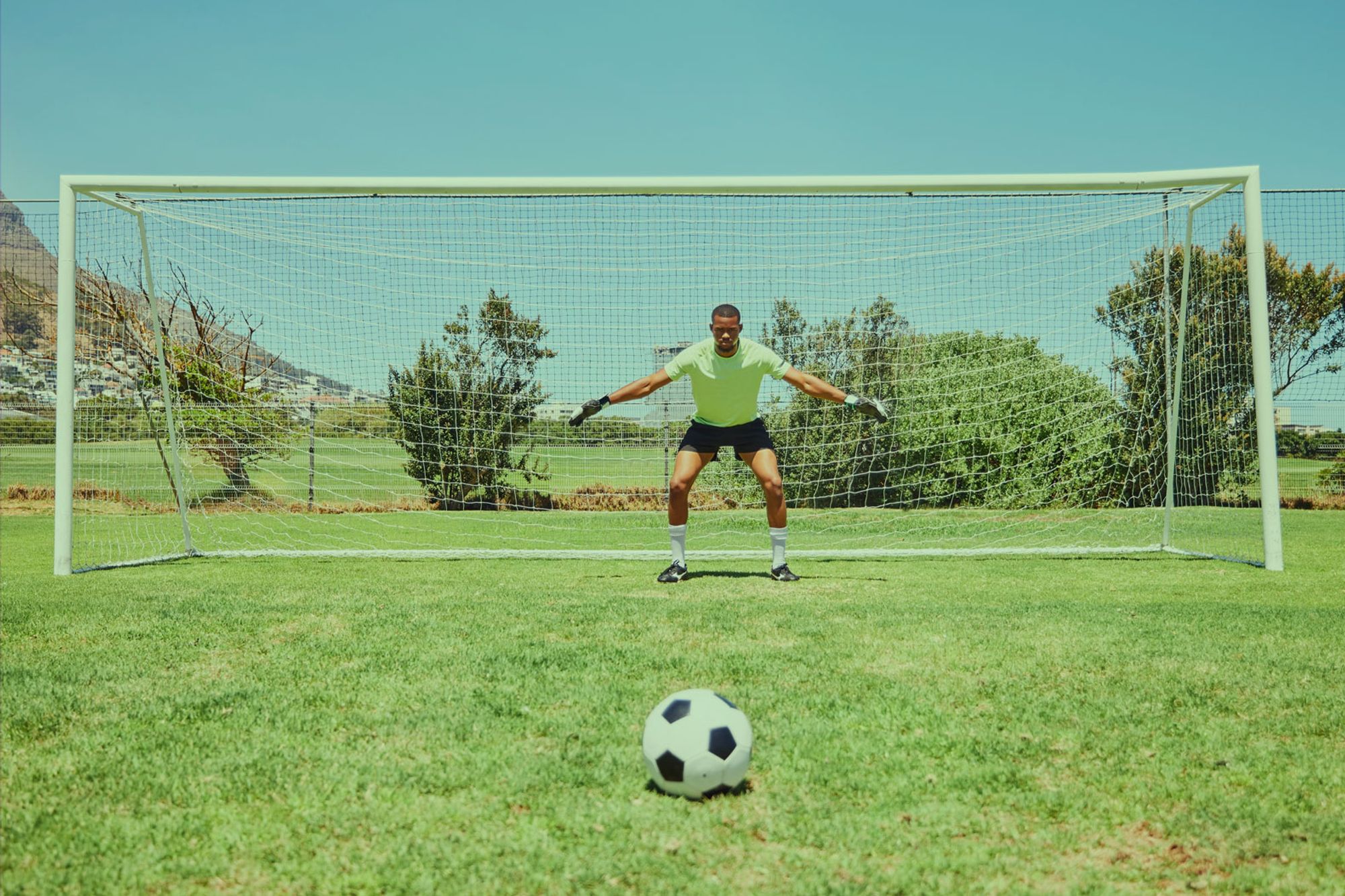
Developing confidence in goalkeepers: keys to optimum performance
Antoine Roex, Keeper In Motion – 12 September 2024
Confidence is a crucial element for goalkeepers, directly influencing their performance on the pitch. This article explores the techniques and strategies that enable goalkeepers to build their confidence, whether through mental preparation, specific training or constructive feedback. Discover how goalkeepers can cultivate this essential quality to excel in decisive moments.
The importance of confidence for goalkeepers
Confidence is one of the fundamental pillars of a goalkeeper’s performance. Unlike other players on the pitch, goalkeepers have a unique and solitary role, where every mistake can have a direct impact on the score. That’s why self-confidence is crucial to maintaining a consistent level of performance, especially in high-pressure situations. A confident goalkeeper is better able to make quick, effective decisions, stay focused, and handle critical situations calmly. Conversely, a lack of confidence can lead to hesitation, technical errors and a general deterioration in performance.
Mental techniques to boost confidence
Developing confidence in goalkeepers involves the use of specific mental techniques. Visualization, for example, is a commonly used method in which goalkeepers imagine successful game scenarios, helping them to prepare mentally for real-life situations. This technique reinforces familiarity with game actions, thus reducing stress and uncertainty. In addition, self-affirmation, in which the goalkeeper repeats positive phrases to himself before and during games, can improve his mental resilience. Mental coaching, including stress and emotion management, is also essential for maintaining a positive attitude, even after a mistake.
Specific training to build confidence
Physical and technical training is another crucial lever for developing confidence in goalkeepers. Specific training, which includes match simulation exercises and scenarios under pressure, enables goalkeepers to feel more prepared for the challenges they will encounter on the pitch. Working on identified weaknesses and consolidating strengths through repeated training sessions helps build a solid foundation of confidence. For example, a goalkeeper who trains intensively on short-range shots will be able to approach these situations in matches with greater confidence.
The importance of constructive feedback and support
The role of coaches and teammates is also crucial in developing a goalkeeper’s confidence. Constructive feedback, which focuses not only on what needs to be improved, but also on what is being done well, enables the goalkeeper to better understand his or her performance and focus on progress. Moral support, both from coaches and team-mates, plays a vital role in building confidence. A positive, encouraging team environment can make all the difference, especially after a mistake or a difficult match.
Conclusion
Developing confidence in goalkeepers is a complex process that combines mental, technical and social aspects. By integrating visualization techniques, targeted training and constructive feedback, goalkeepers can build their confidence and improve their performance. Confidence is not just an innate quality, but a trait that develops and is cultivated with time, effort and the right support. Goalkeepers who manage to maintain a high level of confidence are those who can face the challenges of modern soccer with assurance and efficiency.
References :
